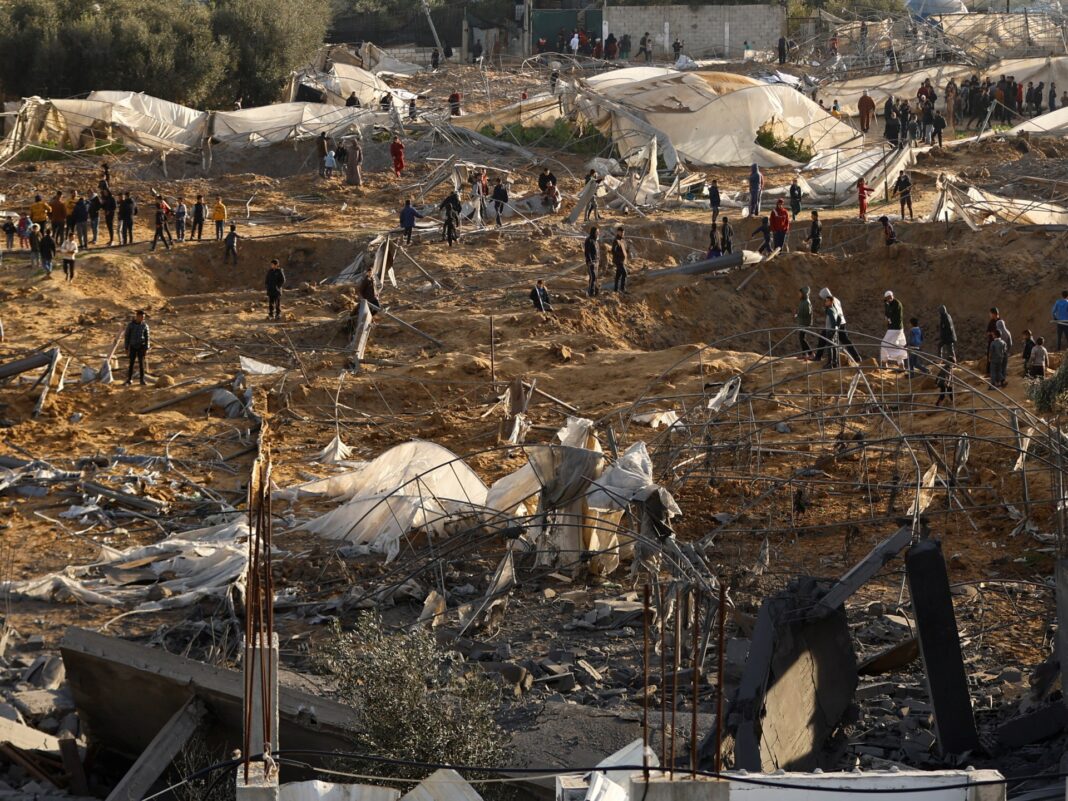Top UN court notes ‘perilous’ situation but rejects South African request to order urgent measure to safeguard civilians.
The top United Nations court said that it notes the “perilous” situation in the southern Gaza city of Rafah, but has declined South Africa’s request for urgent measures to safeguard Palestinians being threatened by an Israeli ground assault there.
“The Court notes that the most recent developments in the Gaza Strip, and in Rafah in particular, ‘would exponentially increase what is already a humanitarian nightmare with untold regional consequences’, as stated by the United Nations Secretary-General,” the International Court of Justice (ICJ) said in a statement on Friday.
It said the situation in Rafah “demands immediate and effective implementation of the provisional measures indicated by the Court in its Order of 26 January 2024”, when it ordered Israel to take all steps within its power to ensure genocidal acts are not being committed in its war on Gaza.
However, the court “does not demand the indication of additional provisional measures”, its statement added.
PRESS RELEASE: the #ICJ issues its decision on South Africa’s request for additional provisional measures in the case of Application of the Convention on the Prevention and Punishment of the Crime of Genocide in the Gaza Strip (#SouthAfrica v. #Israel) https://t.co/dh9olqXtD9 pic.twitter.com/KLIMOD69uo
— CIJ_ICJ (@CIJ_ICJ) February 16, 2024
South Africa said on Tuesday that it had lodged an “urgent request” with the ICJ to consider whether Israel’s military operations targeting Rafah breach provisional orders the court handed down last month in a case alleging genocide.
Israel on Thursday called on the court to reject the request, saying: “South Africa’s unjustifiable claims make clear that its request is not driven by any change in circumstances, nor does it have any basis in fact or law.”
‘Serious breach’ of Genocide Convention
Israel’s war on Gaza has killed more than 28,000 Palestinians across the Strip, according to health authorities. The relentless bombardment since October 7 has also displaced most of the population.
About 1.4 million people are now sheltering in Rafah, on the border with Egypt, which Israel had initially designated a “safe zone” for civilians.
But Israel has been threatening to launch a ground invasion there, a move that the UN and international governments – including Israel’s Western allies – have warned against.
South Africa’s urgent request to the court mentioned the hundreds of thousands of civilians trapped in Rafah, many of them fleeing “pursuant to Israeli military evacuation orders, from homes and areas that have largely been destroyed by Israel”. They could now be threatened directly, it said.
Israel’s unprecedented planned military offensive against Rafah would result in further large-scale killing, harm and destruction “in serious and irreparable breach” of the Genocide Convention and of the ICJ’s ruling at the end of January, the request added.
In its statement on Friday, the ICJ said that Israel “remains bound to fully comply with its obligations under the Genocide Convention and with the said Order, including by ensuring the safety and security of the Palestinians in the Gaza Strip”.
Israel strongly denies committing genocide in Gaza. However, the ICJ last month ruled that it had jurisdiction to hear South Africa’s case against Israel, in which the latter is accused of breaching the Genocide Convention.
The court ordered Israel to do all it can to prevent death, destruction and any acts of genocide in Gaza, but the panel of judges stopped short of ordering an end to the military offensive that has laid waste to the Palestinian enclave.







